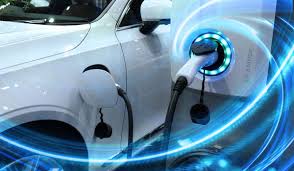India’s electric vehicle (EV) market is on the rise, fueled by government policies, increasing consumer awareness, and advancements in battery technology. However, one of the major challenges hindering widespread EV adoption is the lack of a robust and accessible charging infrastructure. To address this, automakers, private players, and the government are ramping up efforts to expand EV charging networks, ensuring seamless connectivity for EV users across urban and rural landscapes.
The Need for an Extensive EV Charging Network
The Indian EV market is projected to grow at a CAGR of over 40% by 2030, but without adequate charging stations, this growth could face roadblocks. Several key factors highlight the necessity of an expanded charging network:
- Range Anxiety: Many potential buyers hesitate to switch to EVs due to the fear of running out of charge without access to a nearby station.
- Government Targets: The Indian government aims for 30% of total vehicle sales to be electric by 2030, which requires an extensive charging infrastructure.
- Urban & Highway Connectivity: While metro cities see increased charging station setups, highways and tier-2/3 cities still lag.
- Fleet Electrification: The demand from ride-hailing services, corporate fleets, and last-mile delivery companies is increasing the need for widespread charging solutions.
Government Initiatives to Boost EV Charging
The Indian government has implemented multiple schemes and policies to accelerate the growth of EV infrastructure:
- Faster Adoption and Manufacturing of Hybrid and Electric Vehicles (FAME) II: Offers subsidies for EV purchases and the establishment of charging stations.
- PLI Scheme for Advanced Chemistry Cell (ACC) Battery Storage: Aims to reduce dependency on imported EV batteries, thus lowering costs and improving adoption.
- State-Specific Policies: Various states offer additional incentives for setting up public charging stations, such as subsidies and land allocation.
- Mandates for Charging Points in New Buildings: New commercial and residential projects are now required to include EV charging facilities.
Role of Private Players and Automakers
Recognizing the potential in EV infrastructure, several private companies and automakers are making major investments:
- Tata Power: Plans to install over 30,000 charging stations nationwide by 2027, including ultra-fast chargers.
- Maruti Suzuki: Will deploy 1,500 EV chargers at service centers and strategic locations.
- Reliance and Adani: Exploring large-scale EV charging networks in urban hubs and along highways.
- International Investments: Companies like Tesla and BYD are eyeing India’s market, which could boost charging infrastructure with global expertise.
Innovations in Charging Technology
Technology plays a crucial role in improving the efficiency and accessibility of charging infrastructure:
- Fast Charging Stations: DC fast chargers can replenish 80% battery life within 30 minutes, reducing downtime for EV owners.
- Battery Swapping Stations: Aimed at fleet operators and two-wheelers, swapping eliminates charging wait times.
- Smart Charging Solutions: AI-powered systems optimize grid loads and offer real-time station availability through mobile apps.
- Solar-Powered Charging Stations: To promote green energy, companies are integrating renewable energy sources into EV charging.
Challenges in Expanding EV Charging Infrastructure
Despite positive developments, certain challenges persist:
- High Initial Investment: Setting up fast-charging stations requires substantial capital and grid upgrades.
- Land Acquisition Issues: Identifying and securing land for public charging stations remains a hurdle.
- Grid Load Management: Increased electricity demand could strain existing power grids without smart energy solutions.
- Standardization of Charging Connectors: Compatibility across different automakers is necessary for a seamless charging experience.
Future Outlook: Towards a Connected EV Ecosystem
The expansion of EV charging infrastructure is critical for India’s transition to sustainable mobility. The coming years will witness:
- Widespread Adoption in Rural Areas: More stations will be deployed in small towns and highways to support intercity travel.
- Public-Private Partnerships: Collaboration between automakers, energy companies, and the government will accelerate infrastructure expansion.
- Integration with Renewable Energy: Green energy-based charging solutions will enhance sustainability.
- Growth in Home Charging Solutions: Affordable home chargers will enable EV owners to charge conveniently overnight.
Finally !!
The expansion of India’s EV charging infrastructure is an essential step toward achieving a clean, green, and self-sustaining automotive ecosystem. With increased investments, policy support, and technological advancements, the road ahead looks promising for electric mobility in India. As charging networks continue to grow, the adoption of EVs will become more practical and widespread, ushering in a new era of sustainable transportation.


